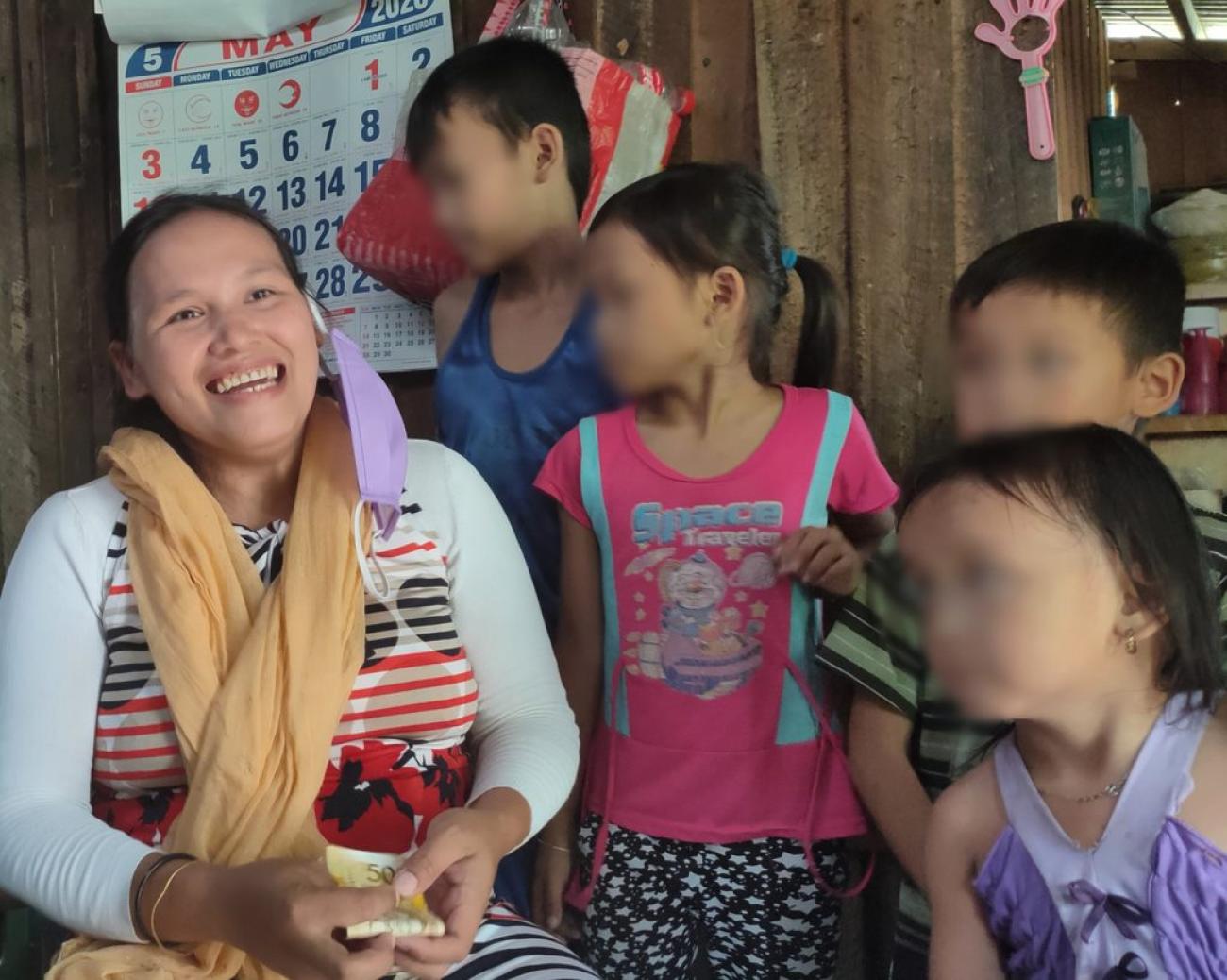Naima Apinton knows why a shock-responsive social protection programme is urgent in the Bangsamoro
Twenty-nine-year-old Naima Apinton lives in the small village of Daguan in Kapatagan, Lanao del Sur with her husband Ansanodin and five young children. Ansanodin makes a living as a pedicab driver, typically earning just 250 to 300 pesos (5 to 6 US dollars) a day. Thus, for Naima, keeping her family fed and clothed had been a daily challenge.
In 2020, when COVID-19 began to disrupt the lives of the people in the BARMM, Naima worried about how the pandemic would affect her ability to provide for her family.
In June 2020, the UN Joint Programme on Shock- Responsive Social Protection (JPSRSP) gave out emergency cash grants to 1,000 families in Lanao del Sur who had 0 to 2 year-old children and who were excluded from the 4Ps and the Social Amelioration Program. The joint programme aimed to provide critical support during the crucial first 1,000 days of a child’s life. Naima’s family was among those that received the emergency cash assistance.
With the money she received, Naima started selling banana fritters and other street food. With her income, she was able to help Ansanodin to provide for their children’s daily needs.
Naima has been able to sustain her small vending business. With her earnings, putting food on the table is no longer a matter of “squeezing sweat and shedding tears,” says Naima. She is also able to bring her children regularly to the municipal clinic.
“I am thankful to the Ministry of Social Services and Development and to the UN for extending help to people like me,” Naima says. [Ends]
Read about the Joint Programme on Shock-Responsive Social Protection











